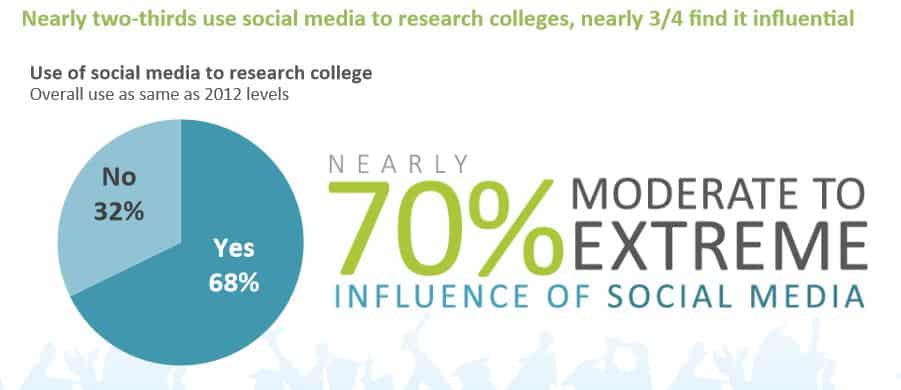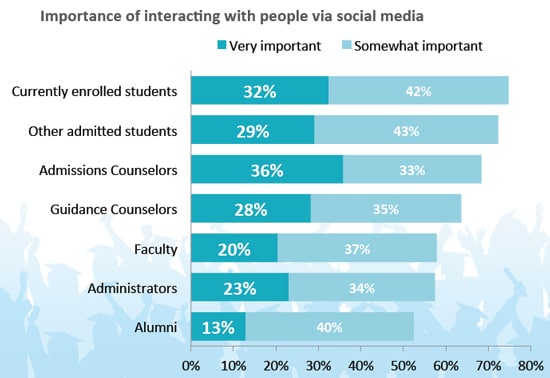New research shows that mobile and social media users are intensely engaged online
The research on mobile device use, and associated Internet user behaviours, continues to accumulate this year. The insights in some of the latest reports build on observations and statistics we’ve offered recently, and will continue to shape marketing practices for mobile in 2014. Two new studies in particular are on our radar this week. The first, based on face-to-face interviews conducted in 24 countries by the Pew Research Center’s Global Attitudes Project, finds that Internet, mobile, and social media use is booming worldwide. Even more interesting, the study shows that users who adopt mobile and social media technologies are often avid, rather than occasional, users of them. A second report - sponsored by the college search service Zinch and Uversity, a social media app for colleges - looks at social media usage and engagement in the college admissions process in the US. It finds that 97% of high school-age prospects in the US view college or university websites on their mobile devices, and that more than two-thirds of prospects report that social media plays an important role in their college search process. These numbers skew higher than the statistics we have seen in other recent research, but even so, the implications for education marketers are clear:
- First and foremost, providers and recruiters of all types have to be prepared to engage with prospects via mobile.
- Second, mobile sites or apps have to not only drive that initial user engagement but also convert prospects through progressive steps along an enquiry and admissions path.
Related research shows us that online search, often unrelated to a specific educational brand or institution, plays a huge role in students’ efforts to explore and choose options for further study. However, much of that search activity does not convert to a higher level of engagement via an enquiry, application, or other key “opt-in” behaviours. Consumer behaviour in the travel industry can be analogous to prospect behaviour in international education, and attendees at the recent Travolution Summit 2013 learned that users might visit as many as 22 websites before purchasing a travel product. Further, 50% of users will continue to search even after they find a travel product that fits their preferences, budgets, or other interests. As reflected in the Zinch/Uversity study above, peer influence is another important factor in travel consumer behaviour, both with respect to validating the customer’s purchase, or helping to turn a “maybe” into a “yes.” This is well reflected in the prevalence of review-based websites in the travel industry but also in the increasing importance of alumni and student testimonials in education marketing.
Mobile and social media use taking shape around the world
The Pew Research study we noted above shows that Internet use is still building in many markets around the world. It also observes, however, that “once people do gain access to the Internet, they quickly begin to integrate it into their lives. A significant number of people in these nations say they use the Internet on a daily basis, including roughly half of those polled in Lebanon, Russia and Argentina. At least 20% use the Internet daily in 15 of the 24 nations surveyed.”
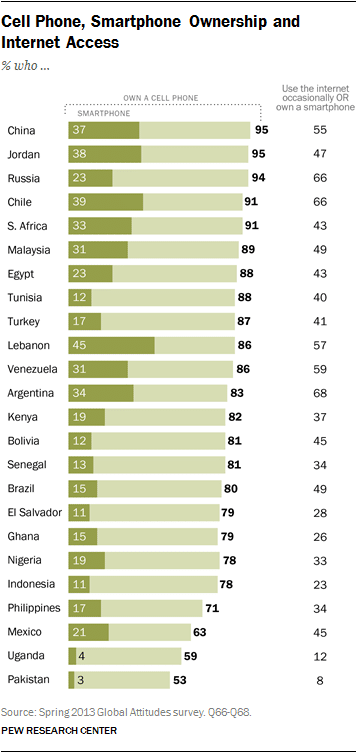
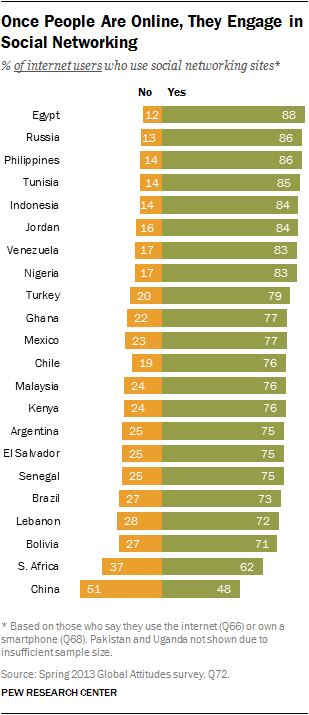
“Generally, the higher a country’s GDP per capita, the higher its percentage of Internet users. The three nations with the highest per capita incomes in this survey – Chile, Argentina and Russia – also have the highest Internet usage rates. Meanwhile, these rates are especially low in two of the poorest countries surveyed, Pakistan and Uganda, where roughly nine-in-ten never go online. Some nations, such as Kenya, Jordan, Egypt and Bolivia have more people online than might be anticipated, given their per capita income.”
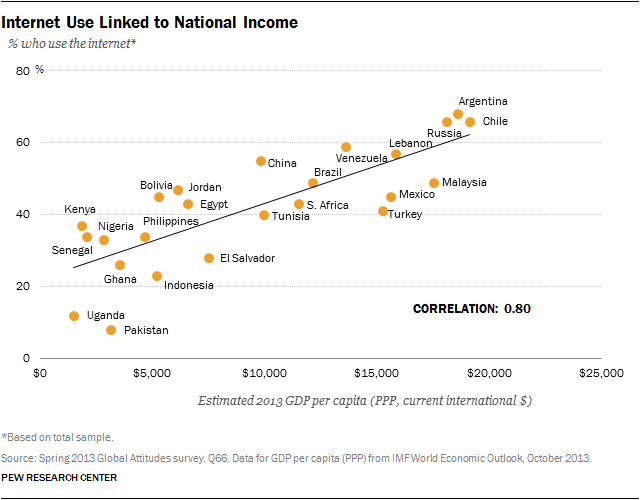
Social signals and the admissions process
Nearly two-thirds of the US prospects in the Zinch study reported using social media to research colleges, and almost 70% felt that social media was either “extremely” or “moderately” influential in their choice of institution.
